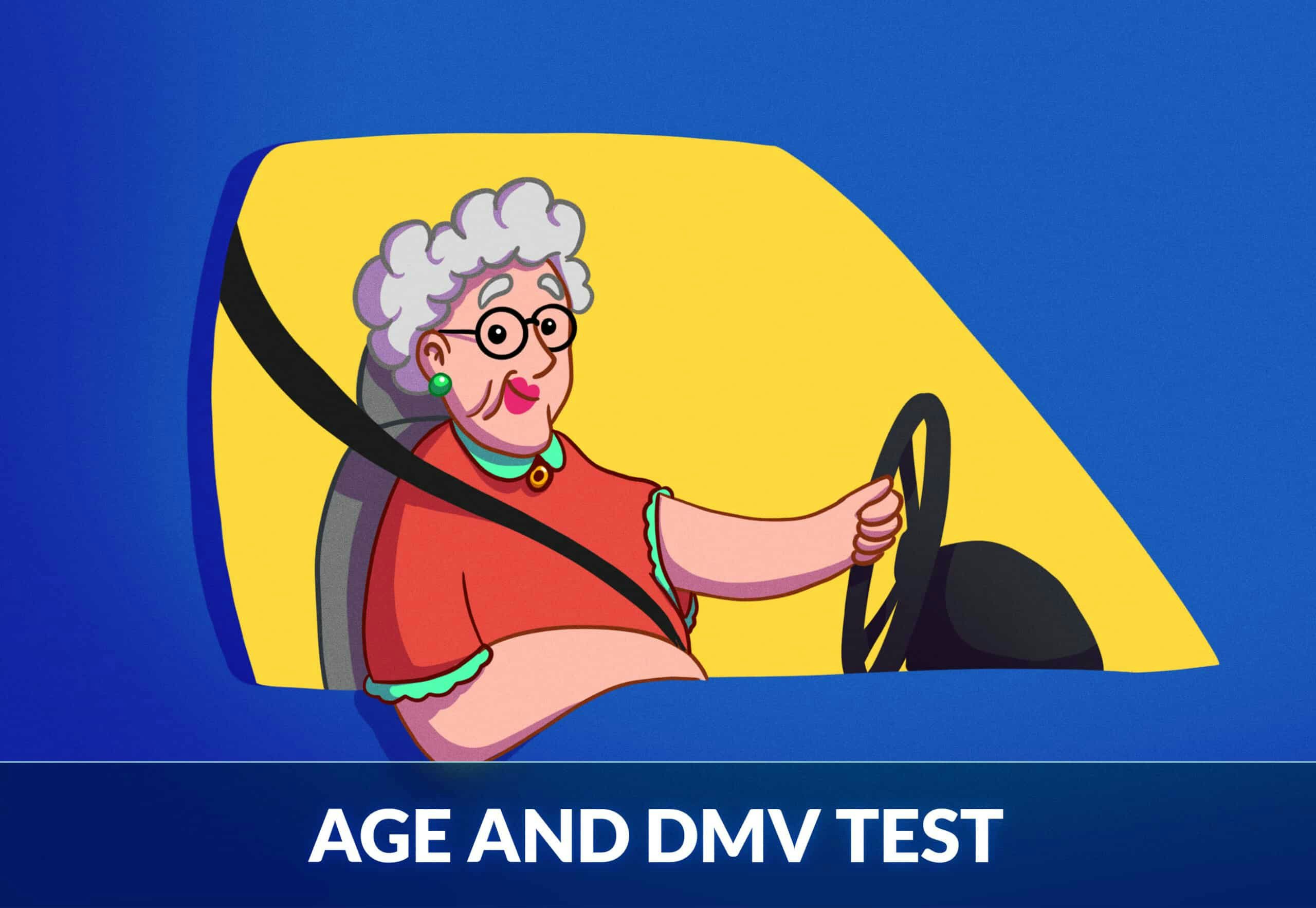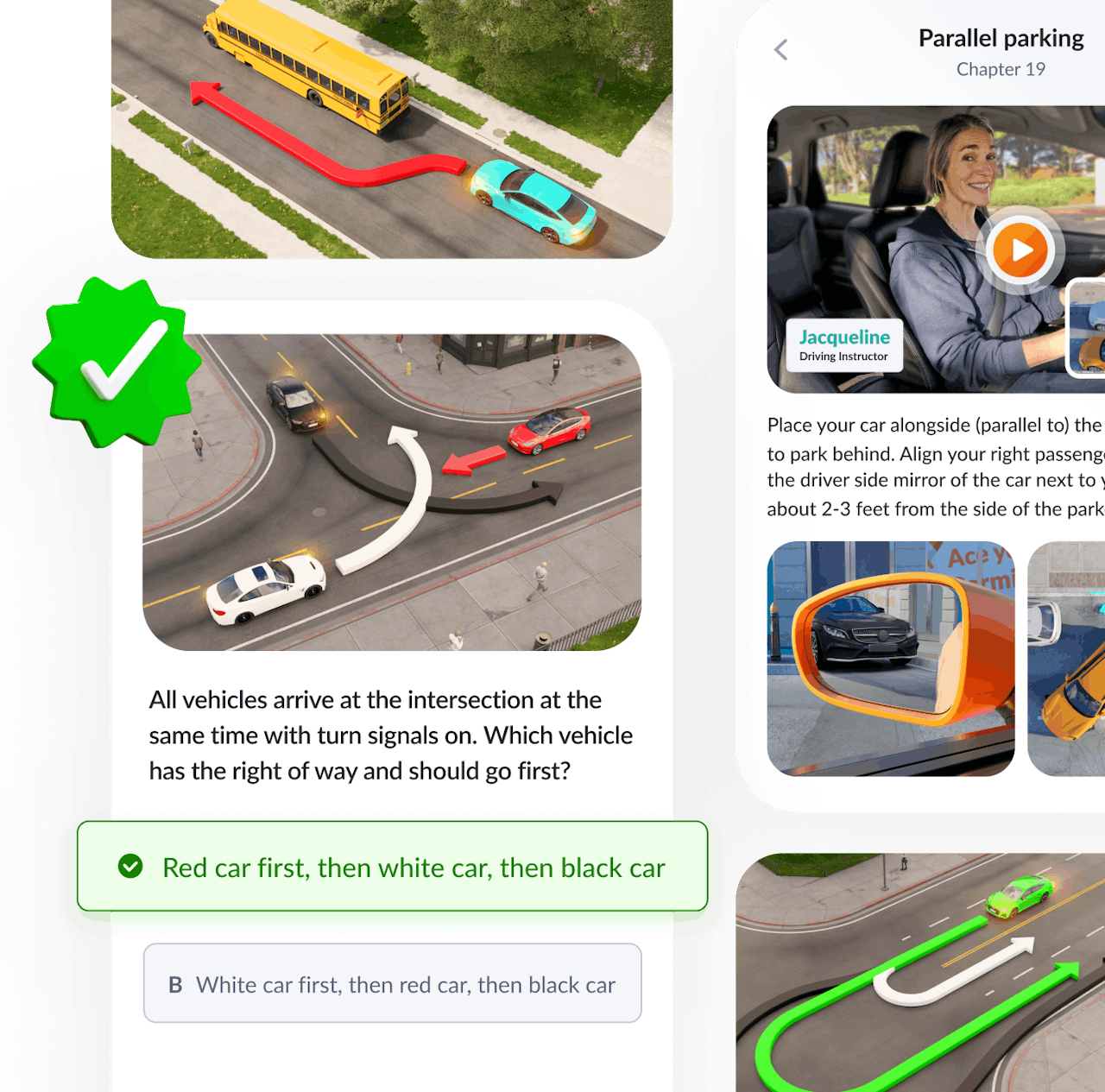
How Age Affects You When Practicing for the DMV Driving Test
It is a commonly known fact that several areas of your life will change tremendously as you grow older. Is your ability to practice for driving test altered by your age as well?
The short answer is, yes, age affects driving. A handful of states require adults over the age of 70 or 80 to retake the DMV exam in order to maintain their driving privileges. If you are in this position, you will certainly notice the difference between studying for the test as a teenager and doing so again as a senior citizen.
However, age may not affect driving the way you think it does. Many common myths are claiming that older drivers are unsafe drivers. While this can be a true statement in certain situations, it is not always the case. In fact, some may argue that older adults make some of the safest drivers on the road. In this article, you’ll learn how the aging process may affect your abilities to study for your DMV test.

1. Aging Affects Your Hearing
As humans age, their hearing naturally deteriorates. When driving, hearing is necessary when listening for emergency vehicle sirens, as well as other motorists on the road. Your hearing will not hinder you on the knowledge test, as it is completely written. However, the issue lies in the road test. You will struggle hearing oncoming vehicles, as well as your test proctor, depending on the severity of your ailment.
How to Manage
Hearing aids may help your issue. Many of those who are hard at hearing purchase hearing aids to make listening to everyday sounds much easier. Visit your local ear specialist for assistance in choosing the style and strength that works for you.
2. Aging Affects Your Vision
Vision is another very important part of driving. In fact, most would argue it is one of the main aspects of operating a motor vehicle. As we age, our eyes become less sensitive to light, which makes it more difficult to drive in dark settings.
According to the BCAA Traffic Safety Foundation, it takes someone who is 55 years old up to eight times longer to regain normal vision after exposure to bright light versus someone who is 16. Older adults are also more susceptible to vision ailments such as cataracts and glaucoma. Not only will this affect your ability to study your driving manual and other study material, but it will also affect your ability to take the written exam itself. While on the road exam, you’ll likely struggle distinguishing stop signs, speed markings, and other traffic signals from a distance.
How to Manage
If driving is absolutely necessary, investing in prescription eyeglasses may assist with vision deterioration that is associated with the aging process. Visiting your local optometrist will provide you with a ton of options that fit your specific needs, as well as your budget.
3. Aging Affects Your Muscles
Your body’s muscles will weaken with time as you age. Your physical muscles aren’t the only ones affected, as your mental muscles will suffer as well. Older adults often suffer from deterioration of muscle mass and ability, as well as an increased risk for mental health issues.
Physically, your reflexes will slow and your flexibility decreases. This will make it harder to perform basic driving maneuvers such as parallel parking or three-point turns. It will also put you at greater risk for accidents, as your reaction times will be greatly altered. When it comes to your mental health, you may feel extremely exhausted or experience sudden bouts of amnesia while driving.
How to Manage
Taking advantage of over the counter medication to circumvent pain is a common solution for active elderly adults. When choosing these (or any) forms of medication, it is important to note side effects and ensure none of them will impair your driving abilities. If they do, it may be best to utilize your treatment when you’re at home with no intention of operating a motor vehicle.
4. Aging Affects Your Energy
Aging is commonly known to cause fatigue, as genetic and environmental changes lead to alterations in biological cells. This will naturally lead to extreme exhaustion before and/or after driving, which may discourage you from operating a vehicle altogether. Understanding your body and exhaustion levels throughout the day will be vital in forming a study routine when attempting to pass the driving test.
How to Manage
For drivers of all ages, it is always best to drive and learn to drive while fully rested. Older adults will need to take heed to this warning fervently, as the effects of energy degradation will be much more profound as a result of the aging process. Ensure that you are clear-headed and in a rested state of mind in order to guarantee better results on the written and road test.
Keeping a strict study schedule will also help you overcome fatigue that is often associated with aging.

At the end of the day, being of old age shouldn’t discourage you from driving altogether. While the aging process places some obstacles in the way of driving, there are several ways to work around these difficulties, such as hearing aids and prescription eyeglasses or medication. It is important to consult your primary physician on how your health will hold up as you start the process of learning (or relearning) to drive.
Keep these in mind when deciding to begin your driving journey and practice for driving test. Be sure to consult with experts, as well as medical professionals to determine what’s best for your specific situation.

600+ exam-like questions and practice tests
Easy summarized DMV handbook
America’s #1 driver’s ed app with a 95.8% pass rate
Recommended articles
Ace your DMV test, guaranteed
Want to Be the Top School in Your Area?
- Simple & automated admin
- More time for teaching
- #1 learning materials for students


